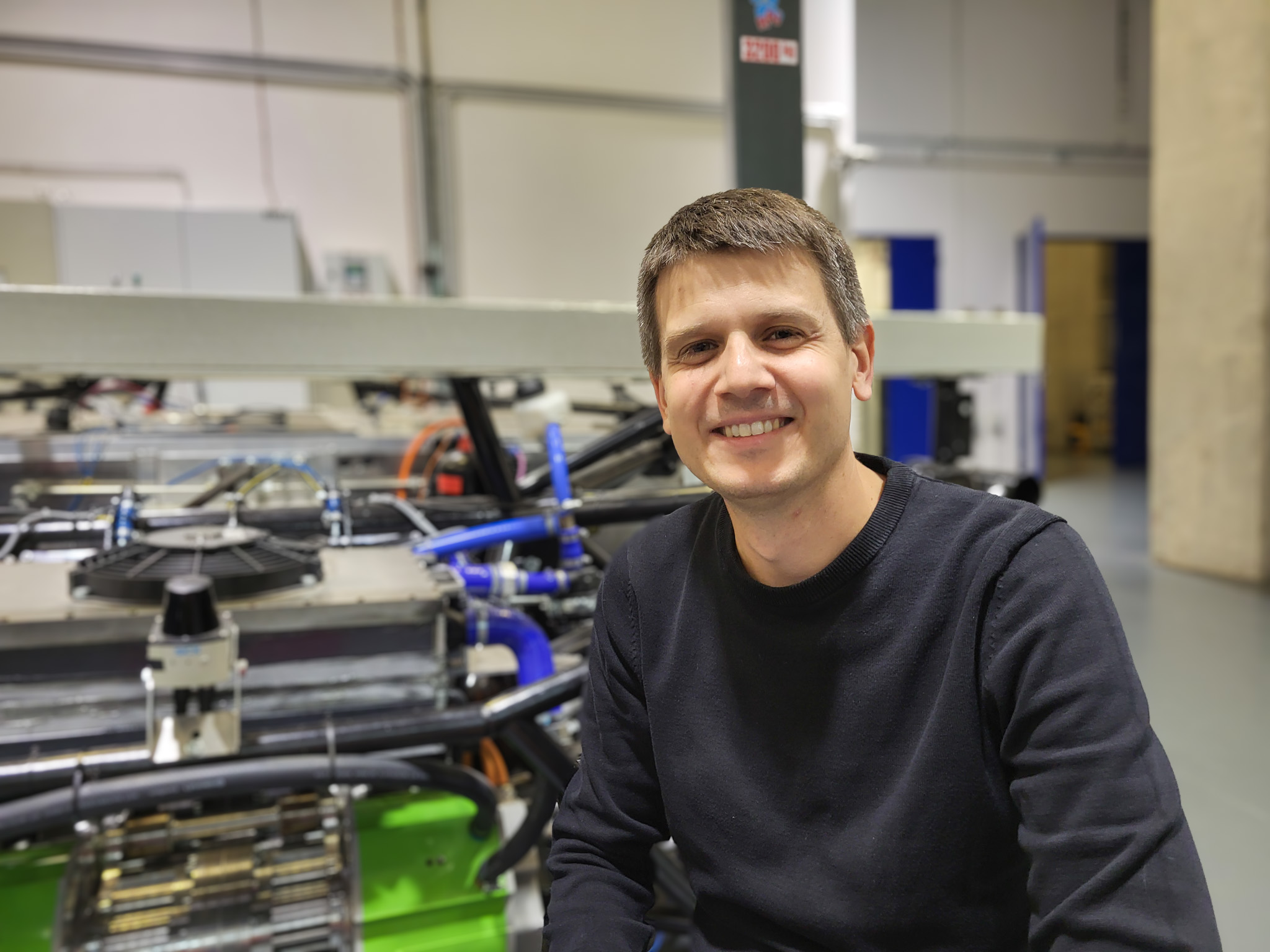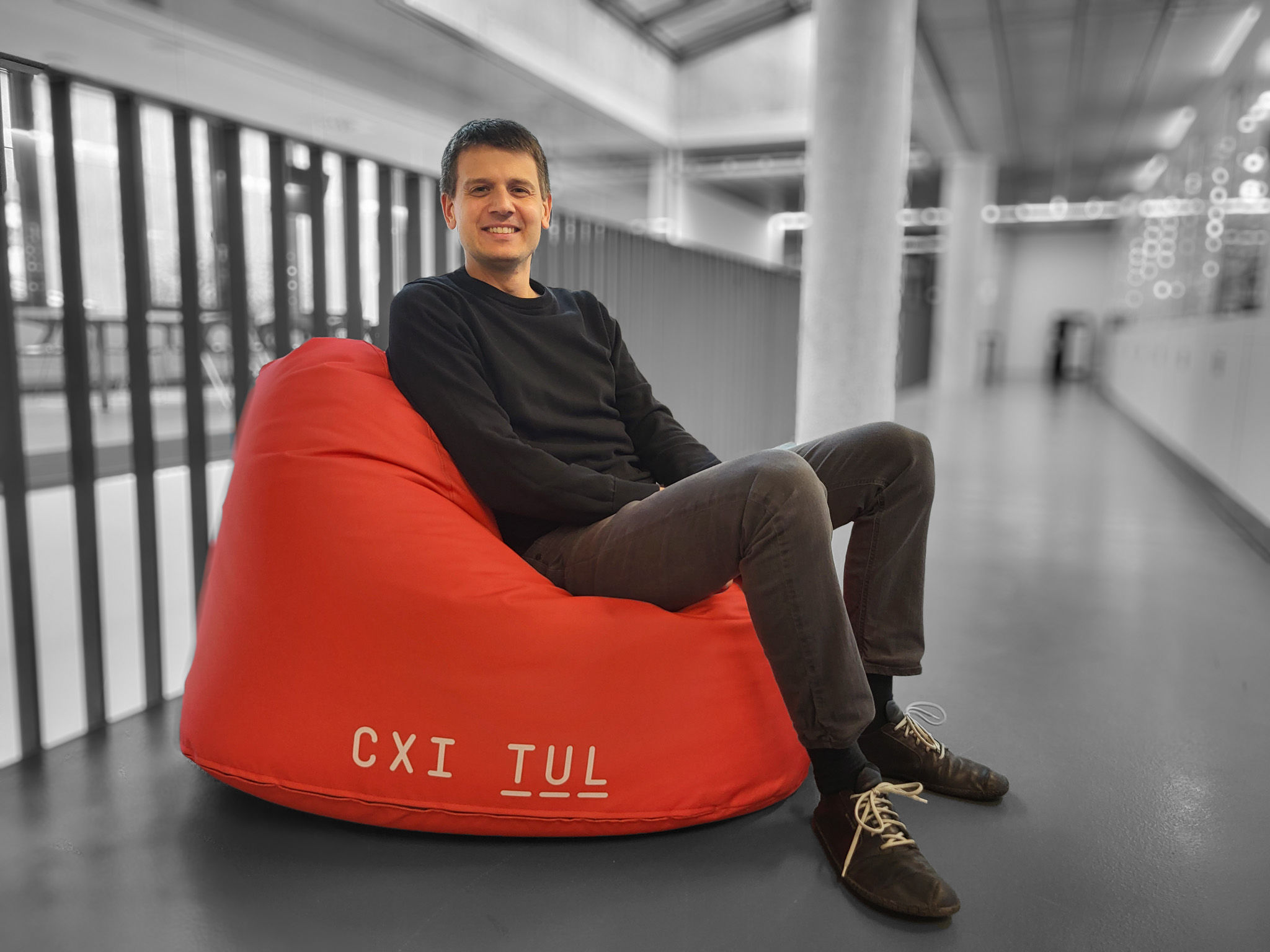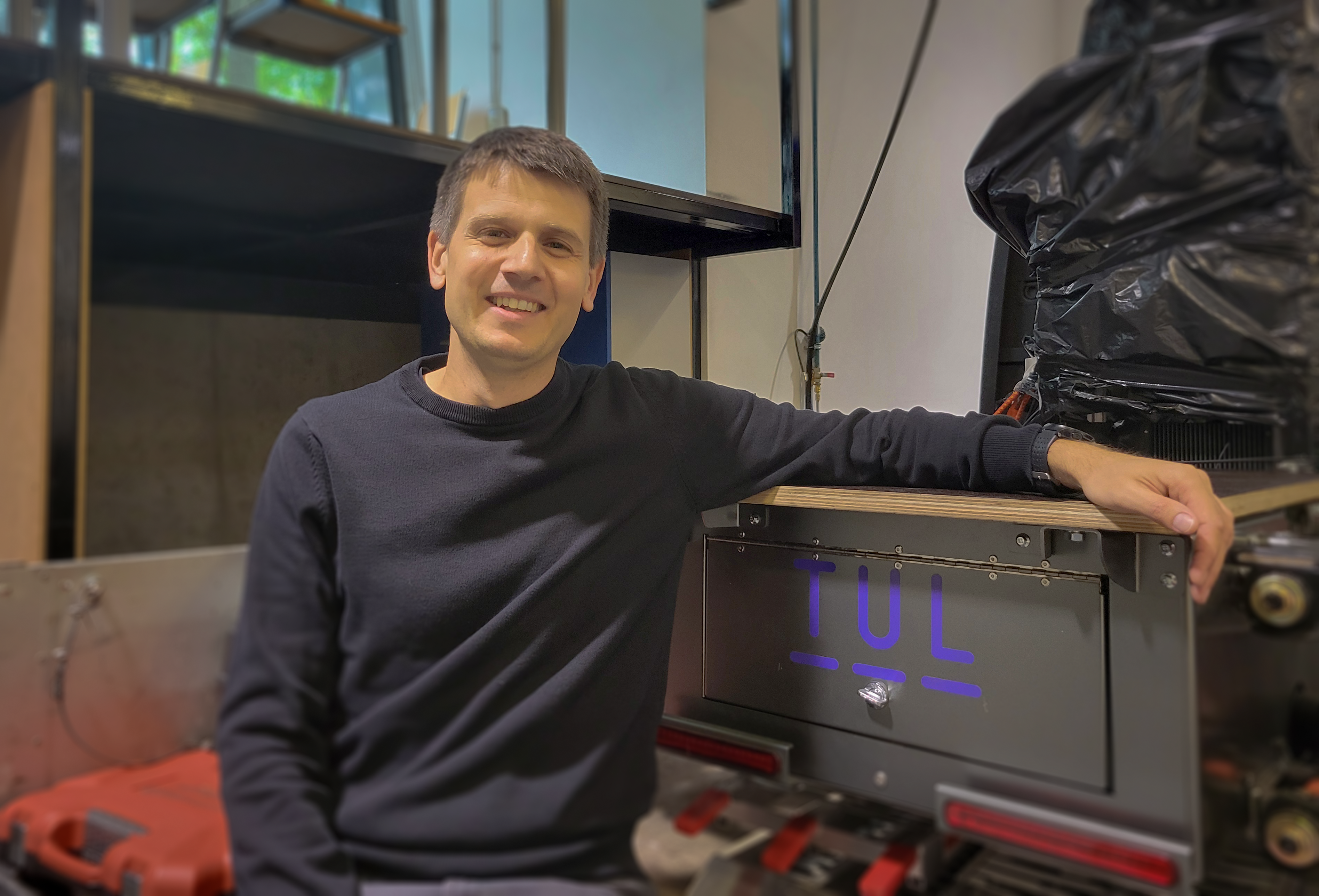Batteries or hydrogen? The future may lie in both, says Josef Břoušek
20. 10. 2025
At a time when environmental protection is a key issue, battery and hydrogen technologies, as well as autonomous platforms, are at the forefront of interest. Josef Břoušek's team from CXI TUL plays an important role in this research.
Civilisation is collapsing and there is a fight for water and fuel, at least in the world of the film Mad Max: Fury Road. Fortunately, in the real world, instead of chasing petrol in armoured trucks, we are focusing on finding sustainable modes of transport. Car manufacturers are investing in the development of electric cars, hydrogen vehicles and other clean technologies. Josef Břoušek is working on research at CXI TUL to prevent such an apocalypse.
Battery temperature management: collaboration with Škoda Auto
One of Josef's team's partners is Škoda Auto, with whom researchers have been collaborating for a long time on the development of combustion engines and mechanical transmissions. Now, the collaboration is expanding to include battery systems, specifically their temperature management.
"Batteries need precisely defined conditions. Sometimes they need to be cooled, other times preheated, in order to function reliably and safely. These systems are already becoming standard in new generations of vehicles," explains Josef, who was attracted to the Technical University of Liberec by the high probability of graduates finding employment with this car manufacturer.
ANTETUL: autonomous battery-powered utility vehicle
The ANTETUL robotic vehicle is an inter-faculty project at TUL led by Michal Petrů, where Josef was responsible for the drives and control systems. It was created as a pre-application project without an industrial partner so that developers could freely experiment with the design and software. The possibilities are wide-ranging, from simple material transport to a power unit with a high-capacity battery to a platform with a robotic arm, and in the future it could find use in agriculture, defence or industry.
"Today, the drives are controlled by humans, but the time is coming when an algorithm will be able to do this. It knows the route, evaluates the speed in corners and optimises the drive to make it more efficient. This has enormous potential for energy savings," says Josef, adding that companies and cities are already expressing interest in using the results of the project for their own needs.
The ANTETUL gen0 autonomous vehicle will be on display on Thursday, 6 November, from 4:00 p.m. to 5:00 p.m. at the Technical Museum in Liberec as part of AI Days.

Battery, hydrogen or combustion engine? It depends on the context
Josef deals with vehicle powertrains, so the question arises as to what he himself drives. The answer? He has both a diesel car and an electric car.
"An electric car is not always better than a combustion engine car, just as a hydrogen bus is not automatically more suitable than a battery bus. It depends on the climate, the user's needs and the time at which we evaluate the technology. But even what is true today may not be true in three years, and certainly not in ten," he explains.
According to Josef, electric cars are comfortable and nimble, but they require more planning, especially due to their range in winter and the need for charging. My car is not yet ideal for long and fast journeys, but it works great for everyday commuting or weekend trips. However, models with significantly better charging solutions are already appearing on the market, but they are still in the higher price category.
Cities may face the same dilemma. "Let me give you an example that comes to mind: if Liberec had electric buses, it would be necessary to change their operating modes depending on the season, because the range can be different in summer and winter. Hydrogen buses don't have this problem as much, but they are more expensive," adds Josef.
Charging an electric car with a caravan is still a problem
The caravan is also one of the reasons why he remains loyal to classic cars. "Hitching up a trailer and refuelling comfortably is still a challenge for cars with alternative drive systems," he admits.
For him, the caravan is a way to explore places he would otherwise not be able to reach, such as nature reserves, hidden beaches and mountains. Among his unforgettable experiences is the Verdon Canyon in France. "But I must admit, I didn't drive there with the caravan because I'm not really comfortable with heights and columns of motorcyclists," he laughs.

Hydrogen: refuelling speed vs. high price
Josef's team's research is not focused solely on batteries. At TUL, they are also continuing a long tradition of research into hydrogen technologies.
"Thanks to previous projects, we have unique facilities, laboratories equipped for hydrogen devices, we are building a fuel cell testing laboratory and we have the know-how of people who have worked with hydrogen," Josef describes. This allows them to collaborate not only with industry, but also with colleagues from materials research at CXI. Together, they assess whether innovations in hydrogen cells or storage make sense, what impact they would have, and where they could be applied.
According to him, hydrogen cars have clear advantages, especially fast refuelling and stable range regardless of the season. However, they are limited by their high price and insufficient infrastructure.
"The future will not be black and white. In some areas, batteries will win, in others hydrogen. It depends on local resources, geopolitics and economics. For example, if a region can produce enough renewable hydrogen, its price will fall and it may make sense," explains Josef.
Within reach of excellence: Experience that a normal company cannot offer
"I am within reach of excellence. I would not have gained such experience in a normal company," he replies when I ask him why he stayed in academia. He also mentions international internships that opened up new horizons for him, working in Finland, Denmark and Switzerland, for example. He sums up his experience at Aalborg University in Denmark with a smile: "I was in an office with a Portuguese, a Greek, a Chinese and a Ukrainian. Everyone had a different perspective, different experiences, and I enjoy that. That's why I try to get involved in international projects, so that I have such a diverse team around me."
He considers cross-disciplinary collaboration to be key. He is also inspired by the approach of renowned scientist Martin Pumera, who also works at CXI TUL. “He says that he doesn’t just seek collaboration with people from his own field, but also with those who are researching something a little different. Together, they can create something completely new. I didn’t realise this before, but it makes a lot of sense to me,” concludes Josef.





.png)
.jpeg)
.png)
.jpeg)
.png)
.jpeg)
.png)


.png)